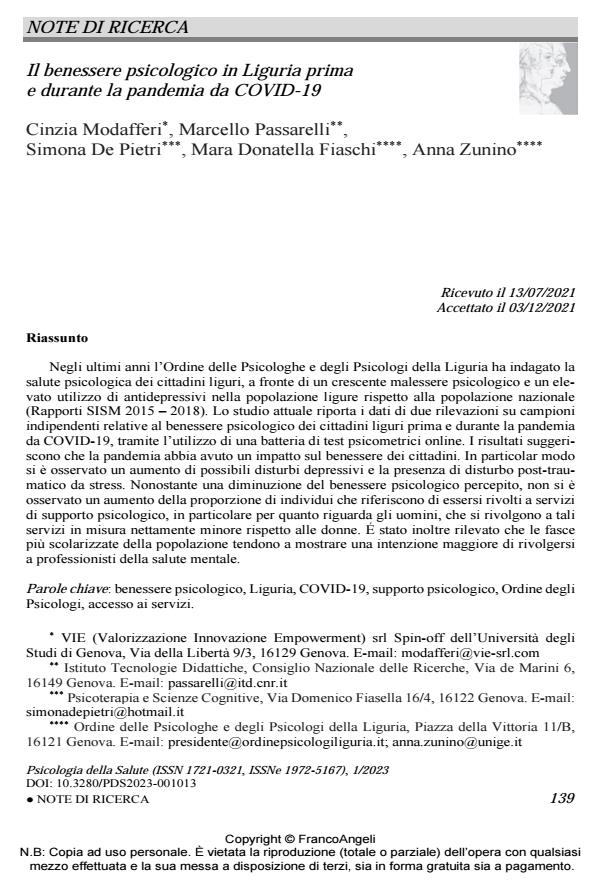The Psychological well-being in Liguria before and during the COVID-19 Pandemic
Journal title PSICOLOGIA DELLA SALUTE
Author/s Cinzia Modafferi, Marcello Passarelli, Simona De Pietri , Mara Donatella Fiaschi, Anna Zunino
Publishing Year 2023 Issue 2023/1
Language Italian Pages 12 P. 139-150 File size 214 KB
DOI 10.3280/PDS2023-001013
DOI is like a bar code for intellectual property: to have more infomation
click here
Below, you can see the article first page
If you want to buy this article in PDF format, you can do it, following the instructions to buy download credits

FrancoAngeli is member of Publishers International Linking Association, Inc (PILA), a not-for-profit association which run the CrossRef service enabling links to and from online scholarly content.
In the last years, the Ligurian Board of Psychologists have investigated the psychological well-being of the Ligurian citizens, facing an increased psychological discomfort and a high usage of antidepressants in the Ligurian population compared to the Italian population (SISM Reports 2015 ‒ 2018). The current study reports two collections of data on independent sam-ples relevant to the psychological well-being of the Ligurian citizens before and during the COVID-19 pandemic, using an online survey. The results suggest that the pandemic had an impact on citizens’ well-being. In particular, a growth of potential depressive disorder and the presence of Post-Traumatic Stress Disorder were observed. In spite of a diminished perceived psychological well-being, the proportion of individuals that reported using psychological sup-port services didn’t increase, especially concerning the male population, who refer to those services to a lesser degree compared to the female citizens. Moreover, data showed that people with a higher education tend to address mental health professionals to a higher degree.
Keywords: psychological well-being, Liguria, COVID-19, psychological support, Ligurian Board of Psychologists, access to services.
Cinzia Modafferi, Marcello Passarelli, Simona De Pietri , Mara Donatella Fiaschi, Anna Zunino, Il benessere psicologico in Liguria prima e durante la pandemia da COVID-19 in "PSICOLOGIA DELLA SALUTE" 1/2023, pp 139-150, DOI: 10.3280/PDS2023-001013